
HEADLINE NEWS
Probably the best record of the review period was southern Africa's ninth Hudsonian Godwit, found along the Paaltjies Road in Walvis Bay. It's the first record in nine years and also the first one that's turned up in winter. The godwit spent just two days in the area before disappearing, much to the disappointment of many twitchers who were hoping to catch up with it. The subregion's first record goes back to March 1987, when a Hudsonian Godwit was found at the Swartkops River estuary in Port Elizabeth. This was followed in February 1989 by one at Bottelary in the West Coast National Park, then a bird in February 1990 on the Berg River at Velddrif (which returned for a second season), then another at Geelbek in the West Coast National Park in December 1999. The following December there was a Hudsonian Godwit at the Walvis Bay Lagoon, another at Seeberg in the West Coast National Park in March 2010, a bird at Voelvlei near Vleesbaai in January 2012 and, most recently, one on the Kromme River estuary in St Francis Bay in February 2014.
This story is from the {{IssueName}} edition of {{MagazineName}}.
Start your 7-day Magzter GOLD free trial to access thousands of curated premium stories, and 9,000+ magazines and newspapers.
Already a subscriber ? Sign In
This story is from the {{IssueName}} edition of {{MagazineName}}.
Start your 7-day Magzter GOLD free trial to access thousands of curated premium stories, and 9,000+ magazines and newspapers.
Already a subscriber? Sign In
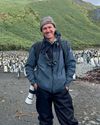
EXPLORING NEW HORIZONS
Keith Barnes, co-author of the new Field Guide to Birds of Greater Southern Africa, chats about the long-neglected birding regions just north of the Kunene and Zambezi, getting back to watching birds and the vulture that changed his life.

footloose IN FYNBOS
The Walker Bay Diversity Trail is a leisurely hike with a multitude of flowers, feathers and flavours along the way.
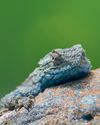
Living forwards
How photographing birds helps me face adversity
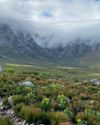
CAPE crusade
The Cape Bird Club/City of Cape Town Birding Big Year Challenge
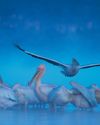
water & WINGS
WATER IS LIFE. As wildlife photographer Greg du Toit knows better than most.
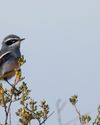
winter wanderer
as summer becomes a memory in the south, the skies are a little quieter as the migrants have returned to the warming north. But one bird endemic to the southern African region takes its own little winter journey.
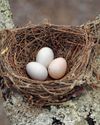
when perfect isn't enough
Egg signatures and forgeries in the cuckoo-drongo arms race

Southern SIGHTINGS
The late summer period naturally started quietening down after the midsummer excitement, but there were still some classy rarities on offer for birders all over the subregion. As always, none of the records included here have been adjudicated by any of the subregion's Rarities Committees.

flood impact on wetland birds
One of the features of a warming planet is increasingly erratic rainfall; years of drought followed by devastating floods. Fortunately, many waterbirds are pre-adapted to cope with such extremes, especially in southern Africa where they have evolved to exploit episodic rainfall events in semi-arid and arid regions. But how do waterbirds respond to floods in areas where rainfall - and access to water - is more predictable? Peter Ryan explores the consequences of recent floods on the birds of the Western Cape's Olifants River valley.
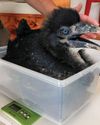
a star is born
It’s every producer’s dream to plan a wildlife television series and pick the right characters before filming.